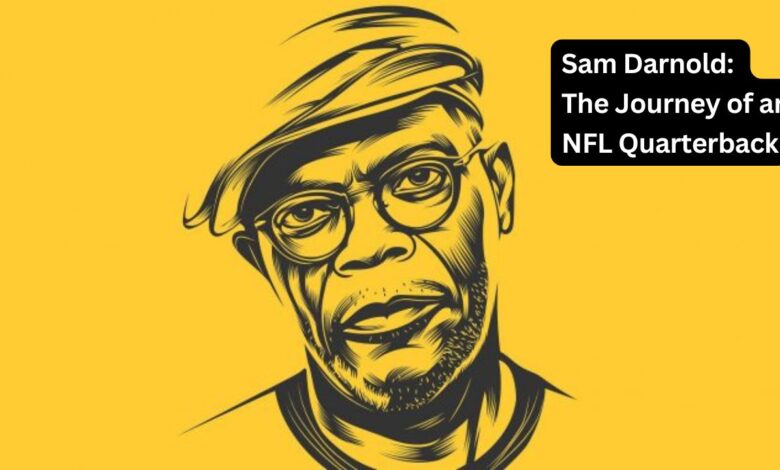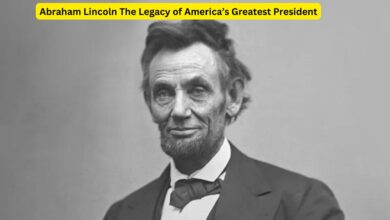Samuel L. Jackson: A Legendary Journey Through Hollywood

Introduction
Samuel L. Jackson is more than just an actor; he’s a cultural icon. With a career spanning over five decades, Jackson has established himself as one of the most recognizable and influential figures in Hollywood. From his memorable roles in blockbuster films to his commanding presence on screen, Samuel L. Jackson’s impact on the entertainment industry is undeniable. In this article, we explore the life, career, and legacy of Samuel L. Jackson, highlighting his most significant achievements and contributions to cinema.
Early Life and Background
Born on December 21, 1948, in Washington, D.C., Samuel Leroy Jackson was raised by his mother, Elizabeth, and his grandparents in Chattanooga, Tennessee. Jackson’s upbringing in the segregated South deeply influenced his worldview and later activism. As a child, Jackson struggled with a speech impediment but eventually overcame it, an experience that would later fuel his determination to succeed.
Education and Early Career
Jackson attended Morehouse College in Atlanta, Georgia, where he initially pursued a degree in marine biology. However, his passion for acting emerged during his time in college, leading him to change his major to drama. Jackson’s involvement in civil rights activism during the 1960s, including his participation in protests and sit-ins, further shaped his character and resolve.
After graduating in 1972, Jackson moved to New York City, where he began working in theater. His early career was marked by stage performances, including appearances in plays like “The Piano Lesson” and “A Soldier’s Play.” These roles helped him hone his craft and gain recognition within the acting community.
Breaking into Hollywood
Jackson’s big break in Hollywood came in the early 1990s, thanks to his collaborations with director Spike Lee. His role as Gator Purify in “Jungle Fever” (1991) earned him widespread acclaim and the Best Supporting Actor award at the Cannes Film Festival. This performance showcased Jackson’s ability to bring depth and intensity to his characters, setting the stage for his future success.
Pulp Fiction and Stardom
One of the defining moments of Jackson’s career came in 1994 when he starred as Jules Winnfield in Quentin Tarantino’s “Pulp Fiction.” His portrayal of the philosophical hitman, with his iconic Jheri-curled hair and biblical quotes, became one of the most memorable characters in cinematic history. The role earned Jackson an Academy Award nomination for Best Supporting Actor and solidified his status as a Hollywood star.
“Pulp Fiction” was a cultural phenomenon, and Jackson’s performance was at the heart of its success. His delivery of the infamous “Ezekiel 25:17” monologue remains one of the most quoted scenes in film history. The role also marked the beginning of a long and fruitful collaboration between Jackson and Tarantino, with the actor appearing in several of the director’s subsequent films.
A Versatile Career
Samuel L. Jackson’s versatility as an actor is one of his greatest strengths. Over the years, he has taken on a wide range of roles, from action heroes to complex villains, showcasing his ability to adapt to different genres and characters.
Action and Blockbuster Films
Jackson is perhaps best known for his roles in action and blockbuster films. As Nick Fury, the director of S.H.I.E.L.D. in the Marvel Cinematic Universe (MCU), Jackson became a central figure in one of the most successful film franchises of all time. His portrayal of Fury, with his trademark eye patch and no-nonsense attitude, has appeared in numerous MCU films, including “The Avengers” series and “Captain Marvel.”
In addition to his work in the MCU, Jackson has starred in other blockbuster hits such as “Die Hard with a Vengeance” (1995), “The Negotiator” (1998), and “Shaft” (2000). His ability to command the screen in high-octane roles has made him a go-to actor for action-packed films.
Dramatic and Complex Roles
While Jackson is often associated with action films, his talent extends to more dramatic and complex roles. In “A Time to Kill” (1996), he delivered a powerful performance as Carl Lee Hailey, a father on trial for murdering the men who assaulted his daughter. The film, based on John Grisham’s novel, was a critical and commercial success, and Jackson’s portrayal of a man driven to the edge by injustice resonated with audiences.
Jackson’s ability to convey emotion and depth in his characters is evident in other films such as “Coach Carter” (2005), where he played the titular high school basketball coach, and “Black Snake Moan” (2006), where he portrayed a troubled blues musician. These roles demonstrated Jackson’s range as an actor and his commitment to taking on challenging and meaningful projects.
Cultural Impact and Legacy
Beyond his impressive filmography, Samuel L. Jackson’s impact on popular culture is immense. His distinctive voice, commanding presence, and ability to deliver memorable lines have made him a beloved figure in the entertainment industry.
Iconic Catchphrases and Memorable Lines
Jackson is known for his ability to deliver lines with intensity and flair, often turning simple dialogue into iconic catchphrases. Phrases like “Hold on to your butts” from “Jurassic Park” (1993), “I have had it with these motherfing snakes on this motherfing plane” from “Snakes on a Plane” (2006), and “Say ‘what’ again” from “Pulp Fiction” have become ingrained in popular culture.
His voice work is equally iconic, lending his voice to characters in animated films such as “The Incredibles” (2004) and “Afro Samurai” (2007). Jackson’s voice has become synonymous with authority and coolness, making him a sought-after actor for both live-action and voice roles.
Awards and Recognitions
Over the course of his career, Jackson has received numerous awards and recognitions for his contributions to cinema. In 2021, he was honored with an Academy Honorary Award, recognizing his lifetime achievements in film. This prestigious award is a testament to Jackson’s enduring legacy and influence in Hollywood.
In addition to his Oscar nomination for “Pulp Fiction,” Jackson has received critical acclaim for his performances in films like “Django Unchained” (2012), “The Hateful Eight” (2015), and “Jackie Brown” (1997). His work has earned him accolades from various organizations, including the NAACP Image Awards and the Screen Actors Guild Awards.
Samuel L. Jackson: The Activist
Outside of his acting career, Samuel L. Jackson is also known for his activism and philanthropy. His experiences growing up in the segregated South and his involvement in the civil rights movement have made him a passionate advocate for social justice.
Civil Rights and Advocacy
Jackson’s commitment to civil rights began during his college years, when he participated in protests and was even expelled from Morehouse College for his activism. This commitment has continued throughout his life, as he has used his platform to speak out on issues such as racial inequality, police brutality, and voting rights.
In addition to his advocacy work, Jackson has supported various charitable organizations and causes, including education, health, and the arts. He and his wife, LaTanya Richardson Jackson, have been involved in numerous philanthropic efforts, including the establishment of the Samuel L. Jackson Foundation, which focuses on education and community development.
Conclusion
Samuel L. Jackson’s journey from a young boy in Chattanooga to one of the most successful and respected actors in Hollywood is nothing short of remarkable. His talent, versatility, and unwavering commitment to his craft have made him a true legend in the entertainment industry. With a career that shows no signs of slowing down, Samuel L. Jackson continues to captivate audiences and inspire future generations of actors.
As we look back on his illustrious career, it’s clear that Samuel L. Jackson’s impact on cinema and culture will be felt for many years to come. His legacy is one of excellence, perseverance, and a relentless pursuit of greatness.




